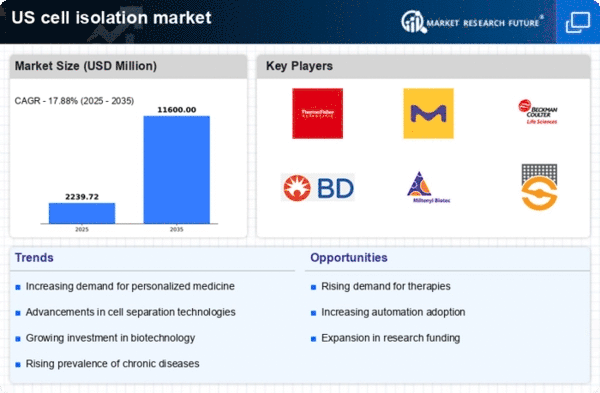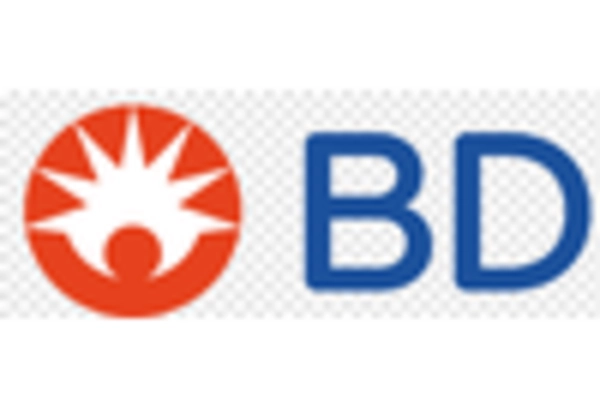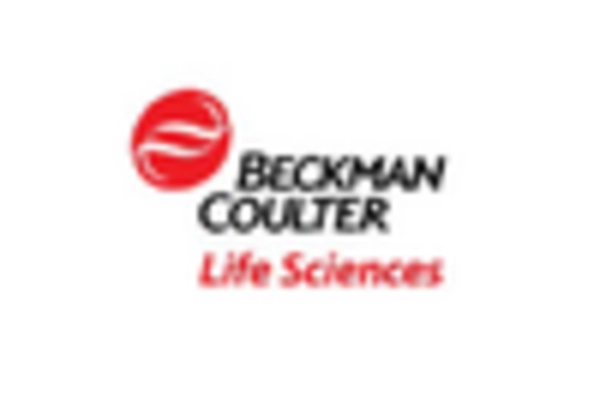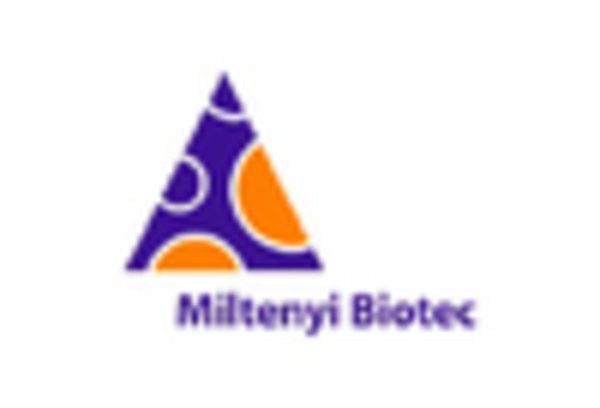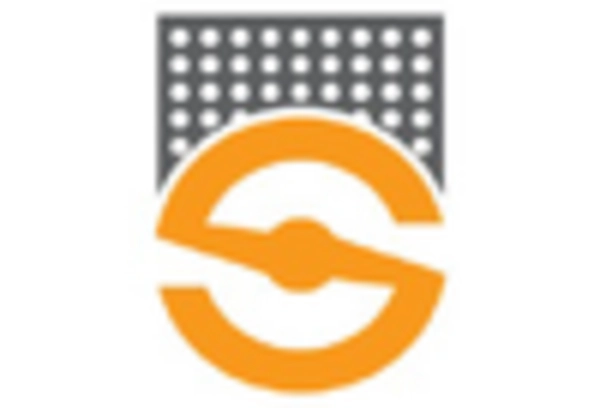Increased Focus on Cancer Research
The heightened emphasis on cancer research is a significant driver for the cell isolation market. With cancer being one of the leading causes of death in the US, there is a pressing need for effective therapies and diagnostics. The National Cancer Institute has allocated over $6 billion for cancer research in 2025, which is expected to fuel advancements in cell isolation technologies. Isolated cancer cells are crucial for understanding tumor biology and developing targeted therapies. As researchers seek to isolate and analyze these cells, the cell isolation market is likely to experience substantial growth. This focus on cancer research not only drives demand for isolation technologies but also encourages collaborations between academic institutions and biotechnology companies, further enhancing market dynamics.
Rising Adoption of Cell-Based Therapies
The increasing adoption of cell-based therapies is a notable driver for the cell isolation market. As the healthcare industry shifts towards personalized medicine, therapies utilizing isolated cells are gaining traction. In 2025, the market for cell-based therapies is expected to exceed $20 billion in the US, reflecting a growing acceptance of these innovative treatments. The ability to isolate specific cell types is essential for the development of effective therapies, particularly in areas such as immunotherapy and regenerative medicine. This trend is likely to propel the cell isolation market forward, as healthcare providers and researchers seek reliable methods for cell isolation to ensure the efficacy of these therapies. The synergy between cell-based therapies and isolation technologies is expected to create a robust market environment.
Expansion of Biobanks and Cell Repositories
The expansion of biobanks and cell repositories is a critical driver for the cell isolation market. As the demand for biological samples for research and clinical applications increases, biobanks are becoming essential resources. In 2025, the number of biobanks in the US is expected to grow by 15%, reflecting a rising need for well-characterized cell lines and samples. These facilities rely heavily on effective cell isolation techniques to ensure the quality and integrity of the samples they provide. The cell isolation market stands to gain from this trend, as biobanks require advanced isolation technologies to meet the growing demand for high-quality biological materials. This expansion not only supports research but also enhances the potential for personalized medicine initiatives.
Growing Research Activities in Cell Biology
The increasing focus on cell biology research is a primary driver for the cell isolation market. As academic and commercial research institutions in the US invest heavily in understanding cellular mechanisms, the demand for cell isolation technologies rises. In 2025, funding for life sciences research is projected to reach approximately $50 billion, indicating a robust growth trajectory. This influx of resources is likely to enhance the development of innovative cell isolation techniques, thereby expanding the market. Furthermore, the need for high-quality isolated cells for applications such as drug discovery and regenerative medicine underscores the importance of this driver. The cell isolation market is poised to benefit significantly from these research activities, as they create a continuous demand for advanced isolation solutions.
Technological Innovations in Isolation Techniques
Technological innovations in cell isolation techniques are driving the growth of the cell isolation market. Advances in microfluidics, magnetic-activated cell sorting, and other novel methodologies are enhancing the efficiency and accuracy of cell isolation processes. In 2025, the market for advanced isolation technologies is projected to grow at a CAGR of 10%, indicating a strong trend towards automation and precision in cell isolation. These innovations not only improve yield and purity but also reduce processing time, making them attractive to researchers and clinicians alike. The cell isolation market is likely to benefit from these technological advancements, as they enable more complex and diverse applications in research and clinical settings, thereby expanding the overall market.


